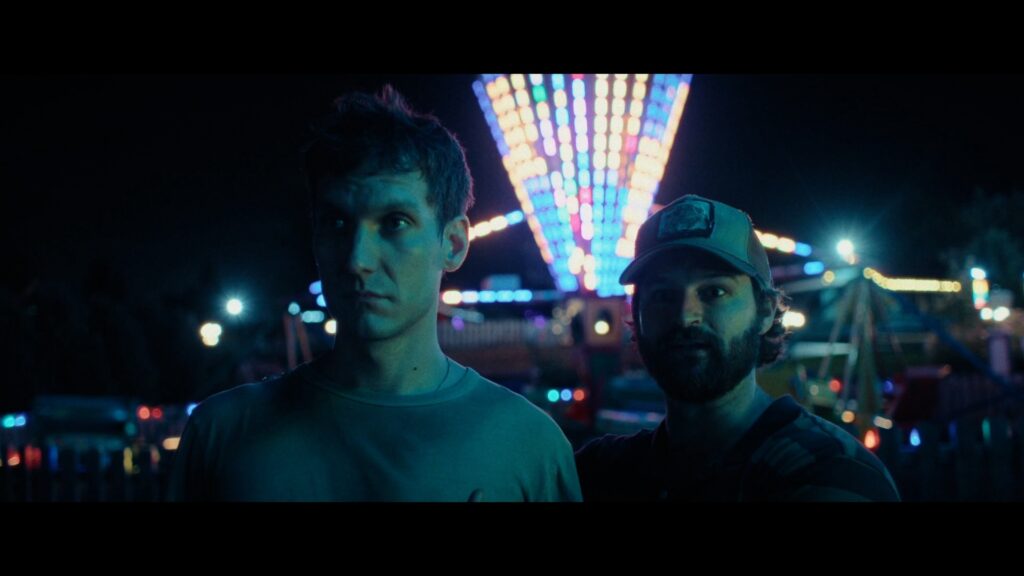A Decidedly Off-Key Feature Rooted in a Conventional Narrative, ‘Okie’ Is a Sleeper Worth Saluting
‘Okie’ is true enough in its particulars and hypnotizing enough as a whole to iterate how many of the most rewarding films being made today can be found at the margins of culture.

Kate Cobb’s “Okie” is a film beset by loose ends, both in terms of the story it tells and how it’s told. This low-budget feature, written by Ms. Cobb and her husband, Kevin Bigley, strikes a chord all the same — a chord whose resonance outweighs the movie’s shortcomings.
Ms. Cobb’s movie is being touted as a “psycho-thriller comedy drama,” an all-in-one description that obscures more than it enlightens. Then again, it is a decidedly off-key feature. Consider “Okie” kin to Aesop’s fable of the city mouse and the country mouse, Shirley Jackson’s “The Lottery,” and, less explicitly, the dour moralism of Nathaniel Hawthorne.
“Okie” is rooted in a conventional narrative: the hometown boy who makes good. Louis Mulgrin (Scott Michael Foster) is a successful novelist living in an unnamed big city. He’s set to be married, but the wedding plans have been waylaid by the death of his father. Louis travels back to a small town in rural Oklahoma to tie up family affairs.
The opening moments of “Okie” convey Louis’s trepidation without the use of dialogue — unless you count the stilted telephone message he leaves for his fiancée, Bridgette (Rochelle Therrien). The camera is on high and at a distance, soaring over and zooming past windmills, power lines, and farmlands. The township into which we are led is distinguished by modest homes, disabused buildings, and forlorn businesses. The old hometown has seen better days.

Louis is fidgety and clearly burdened by memories. He’s also prone to recurring episodes of discomfort marked by a sharp, keening noise. Upon arriving at the family home, Louis does a halting tour of its premises — rifling through closets, papers, and photographs. Ms. Cobb, working in conjunction with cinematographer Wojciech Kielar, evokes the airless quietude of a house devoid of life with sobering verisimilitude. Mr. Foster’s performance treads deftly in their wake.
Not soon thereafter, Louis hears the sound of an idling motor and rounds the perimeter of the property to investigate. The ATV in question belongs to Travis (Mr. Bigley), an old friend from high school who earns his keep as the town butcher and seems to be in a perpetual hunt for a good time. After some awkward catching up — Travis has some pointed comments about Louis’s pricey electric car — the two men crack open beers and loosen up. Why, Travis wonders, does Louis insist on belittling his hometown in all those best-selling novels?
That’s not all: Why did Louis base a character on Travis? The good author hems-and-haws, offering a lame excuse about how his fiction is “an amalgam” of this, that, and the other thing. Before you know it, the two men reconnoiter with a high school friend, Lainey (Ms. Cobb doing triple duty as director, screenwriter, and actress). She’s a former paramour of Louis’s and a single mom struggling to make it on her slim earnings as a waitress at the town diner. Not for the last time will Louis be made aware of his economic advantage.
This Oklahoman burg is small enough that Louis can’t walk more than a couple of steps without being recognized and then mock-celebrated: “Lucky Louie” made a mint by slagging the rubes back home, can you believe it? When his electric car breaks down, Louis has to stay on for the delivery of parts-on-order. So he drinks a lot of beer, smokes a lot of dope, trades in increasingly agitated messages with Bridgette, and begins to rekindle his romance with Lainey.
All the while, Louis suffers headaches, blackouts, and hallucinations, the least of which involves his father, the most of which involves a dunking pool. The screenplay by Ms. Cobb and Mr. Bigley suggests that the root of Louis’s travails are prosaic in nature, even as the momentum and mood of the story suggest something otherworldly. This curious disconnect flattens, at least to some extent, the filmmaker’s extended riff on not being able to go home again.
Even so, “Okie” is true enough in its particulars and hypnotizing enough as a whole to iterate how many of the most rewarding films being made today can be found at the margins of culture. Here is a sleeper worth saluting.

